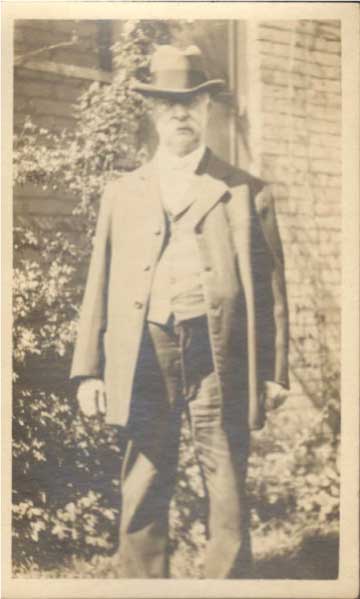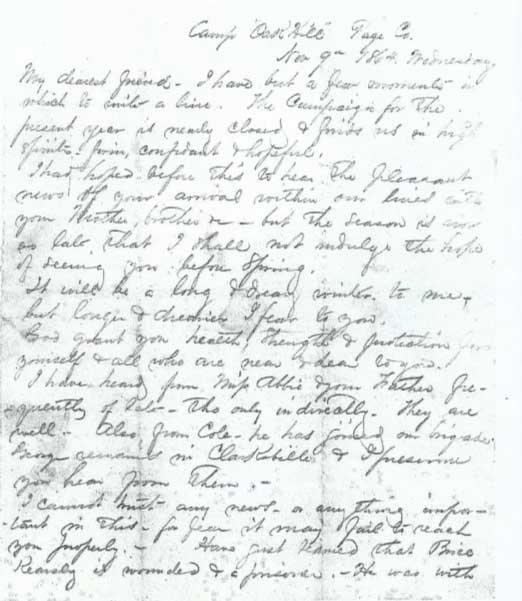A basic family tree and some digging on Ancestory.com yielded the bones of the tale. On the Evans side of the family, Grandfather William J, a childhood Canadian immigrant, entered the war in December 1863 and was assigned to the 15th Illinois infantry regiment. Part of the union tidal wave that swung thru the Deep South during 1864 to 1865, Evans was captured just outside of Atlanta in October of 1864 as Union troops were preparing to march on Savannah. While the following seven months in captivity were filled with hardship, the relative late capture likely made all the difference in his successful battle for survival. Meanwhile, on the Harris side, Grandfather William Boyd enlisted in the 31st Virginia Infantry at wars outbreak and served for the entirety of the war in the east, aside from a short break in a Union prison. Authorized to go behind Union lines and raise recruits in his native Marion County in late 1862, Compton’s mission was cut short when captured in March of 1863. While sentenced to be hung, escape a month later from Fort McHenry cheated the sentence and allowed him to rejoin his unit for the last campaigns in the east. The bones of a narrative in hand, some muscle needed to be added to flesh out the story. First and foremost, the tale of the two soldiers’ prison experience begged to be explored. A few monographs later, the short way to describe the experience for both men is, in a word, bleak. For Evans, life in a southern prison, family tradition maintains the infamous Andersonville, meant both physical and mental deprecation. The war strapped southern supply system could barely feed its own people, much less prisoners, and a lack of planning in any sense of the word meant camps were always undersupplied, overcrowded, and breeding grounds for an alphabet soup of diseases. Adding insult to injury, boredom, depression, and homesickness were constant companions and only compounded the suffering. Meanwhile, the month of confinement for Compton was unquestionably much less physically taxing, but penny pinching northern prison polices ensured conditions were still substandard and the specter of a rope around his neck undoubtedly took a heavy toll. However, while both experiences are fascinating studies, the tale of surviving the southern prison system stole the show and the primary interest on the Harris side took place closer to home in the mountains of western Virginia. At war’s outbreak, western Virginia, especially the northwestern counties, had already began to drift apart from their sister counties east of the Appalachians. The plantation economy never made it across the mountains in force and industrial arteries like the Ohio River and Baltimore & Ohio Railroad linked the land and people closer to the markets of the North than the South. However, loyalties were divided and southern sympathizers existed in even the most northern areas. It was this clash of loyalties that brought a young law student from Fairmont by the name of William Boyd Compton into the conflict. While born in Marion, family roots led back to colonial Virginia aristocracy and these roots led to enlisting for the southern cause. Unfortunately for the South, cases like Compton’s were hard to find in counties far north as Marion and the first year of conflict saw northwestern Virginia swiftly falling to invading Union forces. Compton and the southern cause lived to see brighter days in the years ahead as names like Lee and Jackson battled their way to glory and fame, but that first year of conflict and the battle of ideologies and forces in the counties of northwestern Virginia remain, perhaps, the most fascinating chapter and contain the additional draw of taking place just a short drive away from where I sit while typing this article.
Back in the present, the story continues to take shape. The past few weeks have seen more material arrive from libraries and archives filling in those missing gaps and uncovering new facets to be researched further. Short term, the research has led to the design of a brochure to add to the current foundation set and the long term is limited only by the imagination of the staff and future AmeriCorps members. Writing his sweetheart back in Fairmont, Compton could have been describing the current research project when he commented “The campaigns for the recent year is nearly closed & finds us in high spirits…” My part of the project is drawing to a close, but the future “campaigns” hold much promise and I can’t wait to see how they will turn out. Comments are closed.
|
Preserve WV StoriesCategories
All
Archives
August 2023
|
Get Involved |
Programs |
Contact UsPreservation Alliance of West Virginia
421 Davis Avenue, #4 | Elkins, WV 26241 Email: [email protected] Phone: 304-345-6005 |
Organizational Partners:
© COPYRIGHT 2022 - PRESERVATION ALLIANCE OF WEST VIRGINIA. ALL RIGHTS RESERVED.





 RSS Feed
RSS Feed



